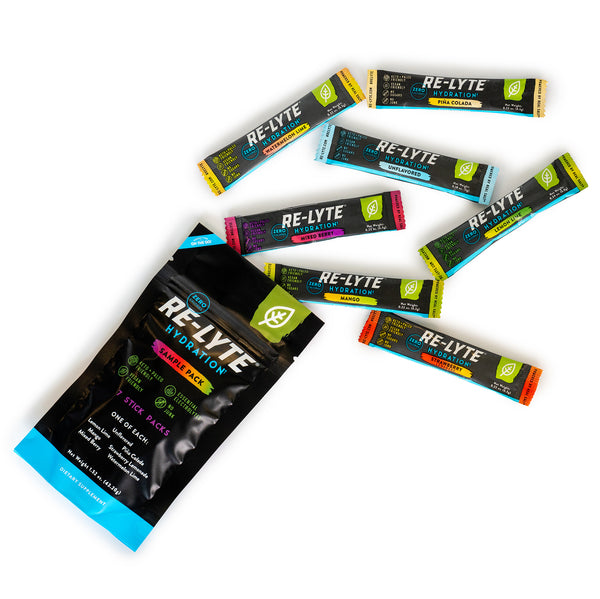Why You Don't Know as Much as You Think You Do

Article at a Glance:
- Our brains don’t actually hold that much information.
- We “know” a lot of things that we can’t back up with hard facts, and we believe a lot of things that aren’t true.
- As social creatures, so much of our knowledge and beliefs are based on the knowledge and beliefs of those around us—we’re wired for connection and collaboration!
- To collaborate effectively and get the most complete information possible, you can embrace the smallness of your perspective, surround yourself with different perspectives, see others as human beings (not objects), keep learning, and be okay with being wrong.
Hard truth: our brains don’t actually hold that much.
In fact, our minds can hold about 1 gig’s worth of information according to a study published in the journal Cognitive Science.
Shocking, right? That’s not much at all!
Let’s try a quick experiment:
- How does gravity work?
- Why is pollution bad for you? Like…why, really? How does it work?
- What about sugar? What’s the physiology behind how sugar affects your body?
Can you explain the science behind these questions? (If you’re a doctor, physicist, or otherwise an expert in these areas, go ahead and substitute an accepted truth in an area you don’t have expertise in)
Chances are, you don’t actually know exactly how these work. You might have a vague idea from your junior high physics class or a nutrition book you read five years ago, but most likely, your stance on these statements came from another source.
Where Our Knowledge Actually Comes From

The truth is, we “know” a lot of things that we can’t back up with hard facts, and we believe a lot of things that aren’t true.
This may sound like a problem, but it doesn’t have to be. (Though it can be dangerous if we’re unaware of it.)
In his 2017 Tedx MileHigh Talk, Cognitive Scientist and University of Colorado Professor Philip Fernbach explains why we believe things that aren’t true, and why this is really a cool part of how humans are designed. Watch it here:
We’re Wired for Collaboration

If this video makes you feel stupid, don’t worry, you aren’t. You’re human! All humans are affected by the thoughts of their communities. Even the really smart ones, and even the ones who seem like they know everything.
We think this feature of the human mind is actually really cool because it means we’re wired for connection and collaboration.
Humans are social creatures, and our thinking is a social process. So much of our knowledge and beliefs are based on the knowledge and beliefs of those around us. (And the opinions of those around us are based on the knowledge and opinions of those around them.)
While this can be very dangerous if we act on false, unvetted information, it can also allow us to accomplish incredible things together.
If we each know a little bit, we can pool our knowledge and collectively, know a whole lot!
Think of the examples of the beehive and the Milan cathedral from the video. It takes thousands of bees, each doing their own small part, to run a beehive. It took thousands of people several centuries to build the cathedral. Could any individual do all that? Not a chance!
But together, humans have built cathedrals, cities, societies, and a whole world. And it’s all because of the way we think and work as a group.
Making the Most of Our Wiring

So how can you embrace this feature of the human mind?
Try these tips for collaborating effectively and getting the most complete information possible.
Embrace the smallness of your perspective.
This has a name, and it’s one of our core values at Redmond.
Occhiolism is knowing the limits of your understanding and getting curious about other viewpoints. When you embrace this, you can get curious about other perspectives!
Surround yourself with different perspectives.
Seek out other perspectives, because the more information and insight you have, the more complete your view will become. Explore all sides of an issue. Don’t buy into a single story of an issue, person, or place. There’s ALWAYS another perspective. Seek them out rather than hide from them.
See others as human beings, not as objects.
Another one of our core values at Redmond is Ubuntu, which is a Nguni Bantu term that we have interpreted to mean, “I see you, I see me, and I am because we are.”
When we encounter differing opinions, it’s easy for us to see the other person as ignorant or even evil, as one of “them,” a representative of the opposition. And when we stop seeing others’ humanity, that’s when we lose our own.
Ubuntu helps us open up to other perspectives because we realize that others are like us and that we need each other. When we open up to this fact, we're in a better position to listen and learn.
Don’t stop learning
We may not be able to know everything, but we can still keep learning. Read books and articles, listen to podcasts, and talk to people with different experiences and perspectives from you. Fill your brain with all kinds of information, and keep an open mind as you do it.
Don’t be afraid to be wrong.
We’re all wrong sometimes, but it doesn’t mean there’s anything wrong with us as people.
If we can be curious about new information and adjust our views accordingly, being wrong can be an interesting opportunity for learning and growth.
This is how we do amazing things as a species. We bring our little bit of knowledge to the table, each do our part, and together, we create cathedrals, cities, companies, families, and movements.
It takes all of us. This is humanity functioning as nature intended.
Speaking of wrong, remember that study we mentioned earlier, about our brains only holding a gig’s worth of info? That study’s actually been debunked.
Though we really don’t know how much information our brains hold, we can’t know everything, and our environments (aka people around us) have a massive effect on our knowledge and opinions. This is why it’s important to be aware of this phenomenon, think critically, and also collaborate with others to create and learn more than we can alone.

So embrace your natural wiring, and get curious about what else is out there!
Do you enjoy learning about personal development topics like this? Follow The Redmond Experience on social media for daily personal development bites from the Redmond Culture Team and join the conversation!
Sources:
- How Much Do People Remember? Some Estimates of the Quantity of Learned Information in Long-term Memory—Cognitive Science.
- Why do we believe things that aren't true— Tedx MileHigh.
- Estimating Human Cognitive Capacities: A Response to Landauer—Cognitive Science.











